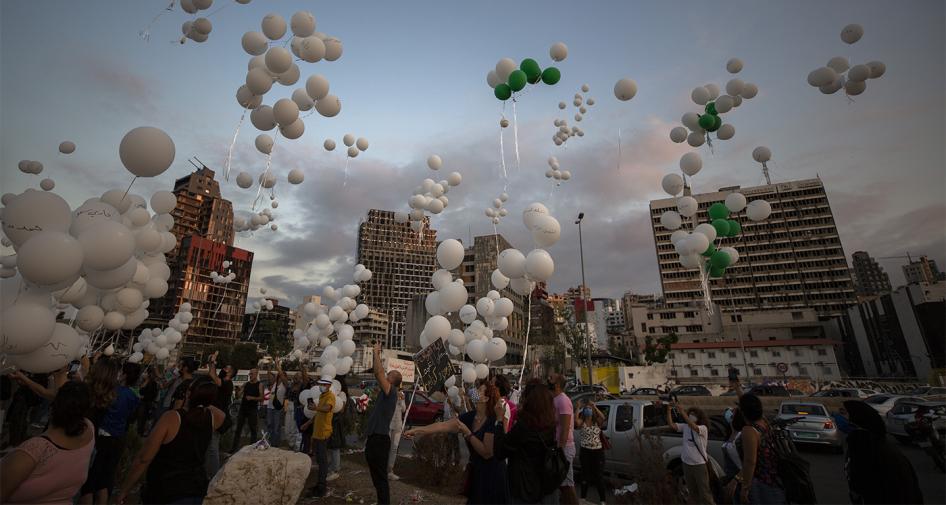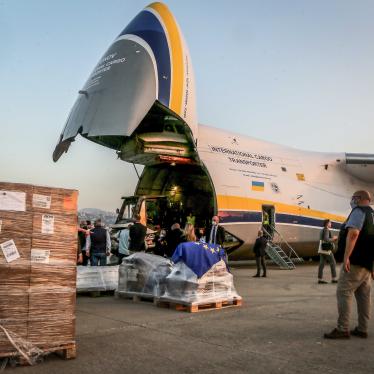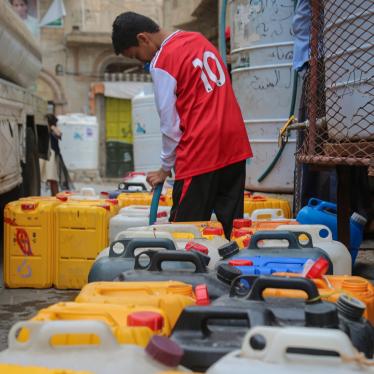(Beirut) – The Lebanese authorities’ corruption and failure to address the massive political and economic crises the country is facing have resulted in the country’s most drastic deterioration of rights in decades, Human Rights Watch said today in its World Report 2021 The unprecedented economic crisis, compounded by the Covid-19 pandemic, has caused the poverty rate to double in the past year.
The massive explosion in Beirut’s seaport, caused by the authorities’ corruption, incompetence, and negligence, killed more than 200 people, injured more than 6,000, and left 300,000 without shelter. The blast reduced entire neighborhoods to rubble, decimated Beirut’s trade and commercial center, and destroyed half of the restaurants and bars in the greater Beirut area, a key part of the economy. However, the domestic investigation into the causes of the blast is not independent, transparent, or credible.
“With each passing day, the lives of Lebanon’s citizens, migrants, and refugees is becoming more unbearable,” said Aya Majzoub, Lebanon researcher at Human Rights Watch. “Yet, the political elite are still haggling over how to divide the shrinking spoils to enrich themselves while impoverishing the country.”
In the 761-page World Report 2021, its 31st edition, Human Rights Watch reviews human rights practices in more than 100 countries. In his introductory essay, Executive Director Kenneth Roth argues that the incoming United States administration should embed respect for human rights in its domestic and foreign policy in a way that is more likely to survive future US administrations that might be less committed to human rights. Roth emphasizes that even as the Trump administration mostly abandoned the protection of human rights, other governments stepped forward to champion rights. The Biden administration should seek to join, not supplant, this new collective effort.
As the Lebanese pound depreciates, the price of basic goods is rapidly increasing, eroding people’s ability to afford food, shelter, and health care. The pandemic compounded the poverty and economic hardship, disproportionately affecting marginalized groups, including low-income families, people with disabilities, migrants, refugees, and LGBTQ people. Eighty eight percent of Syrian refugees in Lebanon are in extreme poverty. The government did not develop a timely, robust, or coordinated assistance plan.
The government’s failure to reimburse hospitals the funds it owes them has thrown Lebanon’s healthcare sector into crisis, compromising the hospitals’ ability to provide urgent and life-saving care and respond to the Covid-19 pandemic.
Despite the economic crisis, the authorities escalated their attacks on free speech and assembly in the wake of the October 17, 2019, nationwide protests. Security forces – including the army, the anti-riot police, and the parliamentary police – used excessive and at times lethal force against mostly peaceful protesters. But instead of holding law enforcement officials accountable, security agencies blamed each other for abuses.
Lebanese authorities have fallen short in their obligations to protect women and girls from violence, and to end discrimination against them. Lebanon has an estimated 250,000 migrant domestic workers, the majority of them women. The Shura Council, the country’s top administrative court, delivered a sharp blow to these workers by suspending implementation of a new standard unified contract, which included new protections and would have been an important first step toward abolishing the abusive kafala (sponsorship) system.







